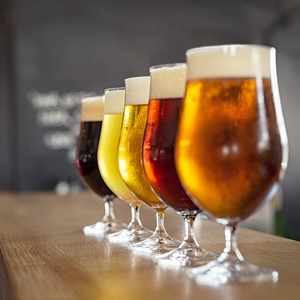
If you work in retail, restaurants or anywhere you have to smile even though you don't want to, you could be drinking more after work. A recent study in the Journal of Occupational Health Psychology found that people who work with the public are more likely to drink excessively after hours.
The study
Researchers from Penn State and the University of Buffalo who looked at the drinking habits of people who have to work with the public, found that there was a link between fake smiles and increased instances of drinking after work.
The study examined data that came from a previous survey called the National Survey of Work Stress and Health, consisting of phone interviews with 1 592 US workers.
The workers were asked how often they would "fake" smiles, often referred to as "surface acting", how often they drank after work, how much control they felt they had on the job and how impulsive they were.
Alicia Grandey, a psychology professor at Penn State told Penn State News that "faking and suppressing emotions with customers was related to drinking beyond the stress of the job or feeling negatively".
She continued to say that "the more they have to control negative emotions at work, the less they are able to control their alcohol intake after work". Grandey urged employers to reconsider policies where employers have to serve customers with a smile, as it may become a health hazard for employees.
The relationship between fake smiling and drinking after work was stronger for people who are impulsive or lack personal control over their behaviour at work.
Furthermore, Grandey said, "If you're impulsive or constantly told how to do your job, it may be harder to rein in your emotions all day, and when you get home, you don't have that self-control to stop after one drink."
Age is not just a number
It is said that age may play a part in this too.
Researchers noted that most workers in retail and restaurant work tend to be younger and in an entry-level job – so, they may not have the self-control needed to fake a smile and not to drink excessively later in a bar or at home.
The link between forced smiles and drinking is strong in employees who have one-time encounters with customers, for example the clerk who rings up your goods at the mall as opposed to healthcare workers who develop a long-term relationship with patients.
Grandey suggests employers use what they have found in the study to create a more desirable workplace for employees. She continued to say that "when the emotional effort is clearly linked to financial or relational rewards, the effects aren't so bad".
Image credits: iStock




 Publications
Publications
 Partners
Partners










